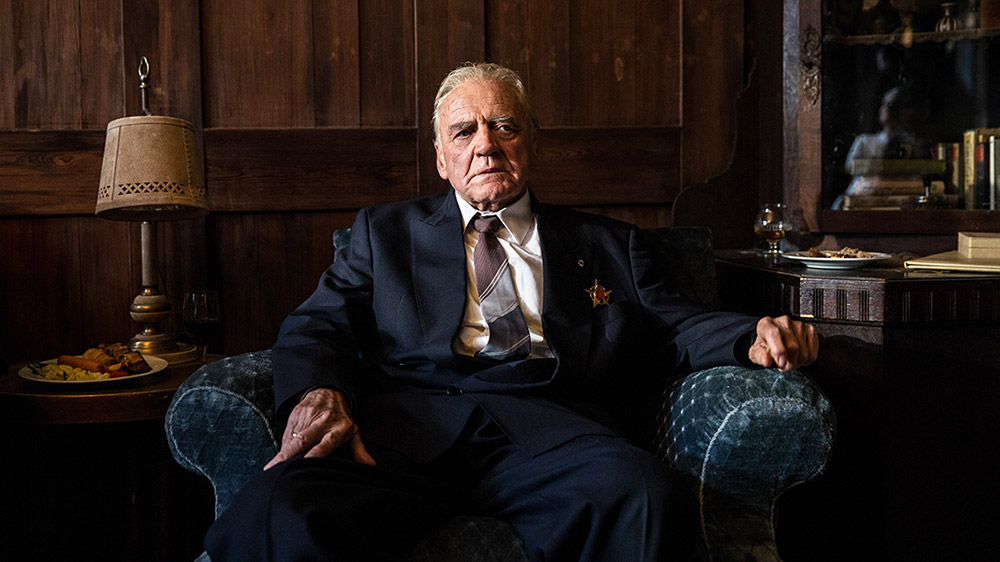In Times of Fading Light is an intimate, slow building portrait of a family of German communists, during the tumultuous, typically jubilant period of German history when the Berlin Wall came down.
In December of 1989, thousands of Germans were fleeing Soviet East Germany for the capitalist Western republic. For this German family, however, the mood was not so festive. Wilhelm, played by Bruno Ganz, is a staunch communist war hero, suffering mild dementia, and celebrating his 90th birthday. As friends, family members and communist party officials come to pay their tributes to the feeble old man – in total denial of political events occurring simultaneously – the party takes a sour note when the news that Wilhelm’s grandson has defected to the West, is slowly brought to light.
Directed by Matti Geschonneck and based on a novel by Eugen Ruge, the film is not exactly a faithful adaption, focusing on one small fraction of the 500 page book. Perhaps this affects the overall core themes of the film, which appear somewhat obfuscated at times. Nonetheless, there is a lot to enjoy in Geschonneck’s adaption, if you are in a patient mood.
In Times of Fading Light starts out strongly, with stark imagery of four patrol tanks moving through Berlin, and follows in with the characters of Wilhelm’s stepson Kurt, played by Sylvester Groth, and his 32 year old son Sascha (Alexander Fehling), who plans to defect. To me, this part of the film was the strongest; powerfully sentimental, as the father and son argue over the wisdom of age and the folly of youth, before Kurt admits that his son is right, and that everything is ‘going to shit’. It seems to be an unfortunate choice of cutting, that this strong emotional beginning is not brought to a satisfactory closure in this chosen fraction of the original narrative.

Geschonneck plays with light and shadow to portray the sombre twilight years of Wilhelm, as he struggles around his ornate house, argues with his bitter and spiteful wife Irina (Hildegard Schmahl) and flirts with the house maid (Gabriela Maria Schmeide).
There are many moments of sublime wit and world weary wisdom in the film (that recall the work of Chekhov), but the plot moves very slowly, and at times arduously. Evgenia Dodina is without a doubt the standout performance of the film, playing the heavily drinking, yet charismatic Russian daughter in law (embittered wife of cheating Kurt), who turns the party on its head with her drunken exposure of the taboos the family seems unable or unwilling to face.
The film does stand up as a more intimate look at a highly visited moment of history in cinema. Whilst traditionally most films have focused on the festive mood of the events surrounding the coming down of the Berlin Wall, this movie succeeds in depicting the bitterness felt by those whose history and suffering was tied up with the communist party.
In Times of Fading Light is part of the lineup at this year’s German Film Festival in Australia. It’s not the most action-packed film set to hit the festival, but for those with an interest in this historical period, there is something to take away from the film. The festival looks set to showcase a range of very entertaining films, and will run from the 22nd of May to the 10th of June.
Fun Fact:
Sylvester Groth has played demented Nazi minister for propaganda Goebels twice, both in the 2007 German film Men Fuhrer – Die Wirlich wahrste Wahreit uber Adolf Hitler, and Quentin Tarantino’s Inglorious Basterds (2009).




COMMENTS